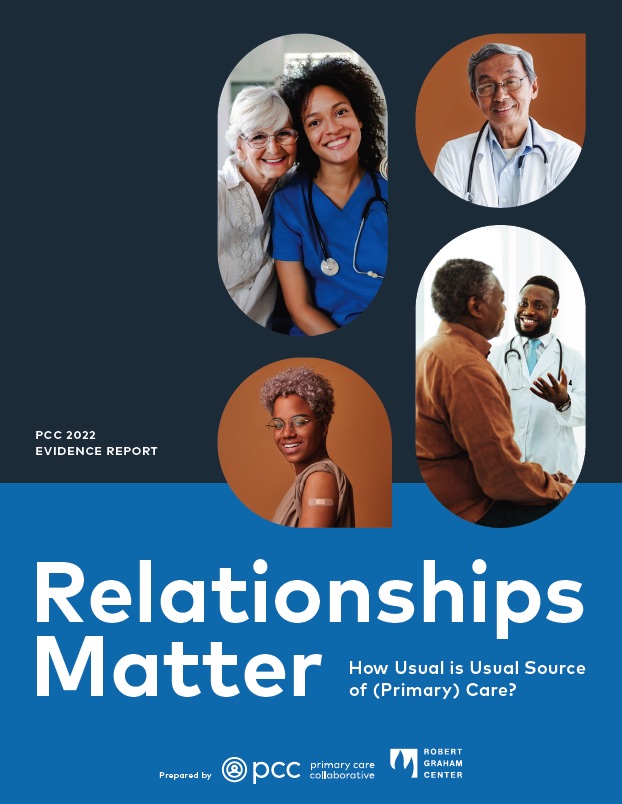You are looking at an archived version of our site. Please visit thepcc.org for a fresh, new experience!
Benefits of Integration of Behavioral Health
Overview of Benefits of Integrating Behavioral Health in PCMH
- 80% of people with a behavioral health disorder will visit a primary care provider at least once a year 2
- 50% of all behavioral health disorders are treated in primary care3
- 48% of appointments for all psychotropic agents are with a non-psychiatric primary care provider4
- 67% of people with a behavioral health disorder do not get behavioral health treatment5
- 30-50% of patient referrals from primary care to an outpatient behavioral health clinic do not make the first appointment6
- Two-thirds of primary care physicians report not being able to access outpatient behavioral health for their patients. Shortages of mental health care providers, health plan barriers, and lack of coverage or inadequate coverage were all cited by primary care providers as critical barriers to mental healthcare access7
Financial Benefits of Behavioral Health Integration
- Use of health care services decreased by 16% for those receiving behavioral health treatment, while it increased by 12% for patients who were not treated for their behavioral health care needs8
- Depression treatment in primary care for those with diabetes had $896 lower total healthcare costs over 24 months9
- Depression treatment in primary care had $3,300 lower total healthcare cost over 48 months10
- Behavioral health disorders account for half of all disability days11
- Annual medical expenses--chronic medical & behavioral health conditions combined -- cost 46% more than those with only a chronic medical condition12
- Of the top five conditions driving overall health care costs (work related productivity + medical + pharmacy cost), depression is ranked number one13
Impact of Adding Behavioral Health to the PCMH
The Collaborative Care Research Network (CCRN), a sub-network of the American Academy of Family Physicians, builds off the idea that a national network is stronger than individual practices in examining research questions around behavioral health in the medical home. It was developed to implement a national, practice based research agenda to evaluate the effectiveness of collaboration between behavioral health and primary medical care. Over 30 practices with integrated behavioral health and primary care services that are actively working on a nationwide research agenda have been recruited to participate in this network.
ICSI's DIAMOND Bibliography describes the evidence around the collaborative care model for depression. It includes studies of care delivery, cost effectiveness, and workplace effects.
Sources
1. Kroenke K, Mangelsdorff AD. Common symptoms in ambulatory care: Incidence, evaluation, therapy, and outcome. American Journal of Medicine. 1989;86:262-266.
2. Narrow WE, Reiger DA, Rae DS, Manderscheid RW, Locke BZ, Goodwin FK. Use of services by persons with mental and addictive disorders: Findings from the National Institute of Mental Health Epidemiologic Catchment Area Program. Archives of General Psychiatry. 1993;50:95-107.
3. Kessler RC, Demler O, Frank RG, et al. Prevalence and Treatment of Mental Disorders, 1990 to 2003. N Engl J Med. June 16, 2005 2005;352(24):2515-2523.
4. Pincus HA, Tanielian TL, Marcus SC, et al. Prescribing Trends in Psychotropic Medications: Primary Care, Psychiatry, and Other Medical Specialties. JAMA. February 18, 1998 1998;279(7):526-531.
5. Kessler RC, Demler O, Frank RG, et al. Prevalence and Treatment of Mental Disorders, 1990 to 2003. N Engl J Med. June 16, 2005 2005;352(24):2515-2523
6. Fisher L, Ransom DC. Developing a strategy for managing behavioral health care within the context of primary care. Archives of Internal Medicine. 1997;6:324-333.
7. Cunningham PJ. Beyond parity: Primary Care Physicians' Perspectives on Access to Mental Health Care. Health Affairs. 2009;28(3):w490–w501.
8. Chiles JA, Lambert MJ, Hatch AH. The Impact of Psychological Interventions on Medical Cost Offset: A Meta-analytic Review. Clinical Psychology: Science and Practice. 1999;6:204-220.
9. Katon W, M. VK, Lin E, et al. Improving primary care treatment of depression among patients with diabetes mellitus: the design of the pathways study. General Hospital Psychiatry. 2003;25(3):158-168.
10. Unutzer J, Katon WJ, Fan MY, Schoenbaum MC, Lin EHB, Della Penna RD. Long-term cost effects of collaborative care for late-life depression. The American Journal of Managed Care. 2008;14(2):95-100.
11. Merikangas KR, Ames M, Cui L, et al. The Impact of Comorbidity of Mental and Physical Conditions on Role Disability in the US Adult Household Population. Arch Gen Psychiatry. October 1, 2007 2007;64(10):1180-1188.
12. Merikangas KR, Ames M, Cui L, et al. The Impact of Comorbidity of Mental and Physical Conditions on Role Disability in the US Adult Household Population. Arch Gen Psychiatry. October 1, 2007 2007;64(10):1180-1188.
13. Loeppke R, Taitel M, Haufle V, Parry T, Kessler RC, Jinnett K. Health and productivity as a business strategy: a multiemployer study. J Occup Environ Med. Apr 2009;51(4):411-428.
What's New
August 16, 2024
- Page 1
- ››




